The Church In The Darkness (Review)

Source: Review Copy
Price: £14.99 (OST+ BTS £7.19)
Where to Get It: Steam
I can’t really lie, but when I looked at Church In The Darkness, I was… Wary. A game about cults, especially American ones, can be… A widely variable experience, in terms of narrative quality. Often, cults are enemies, generic or otherwise. Sometimes interesting things are done with them. And, at worst, they can be games with an odd poltical slant while the company in question vehemently denies there’s any politics… Despite the fact there clearly is.
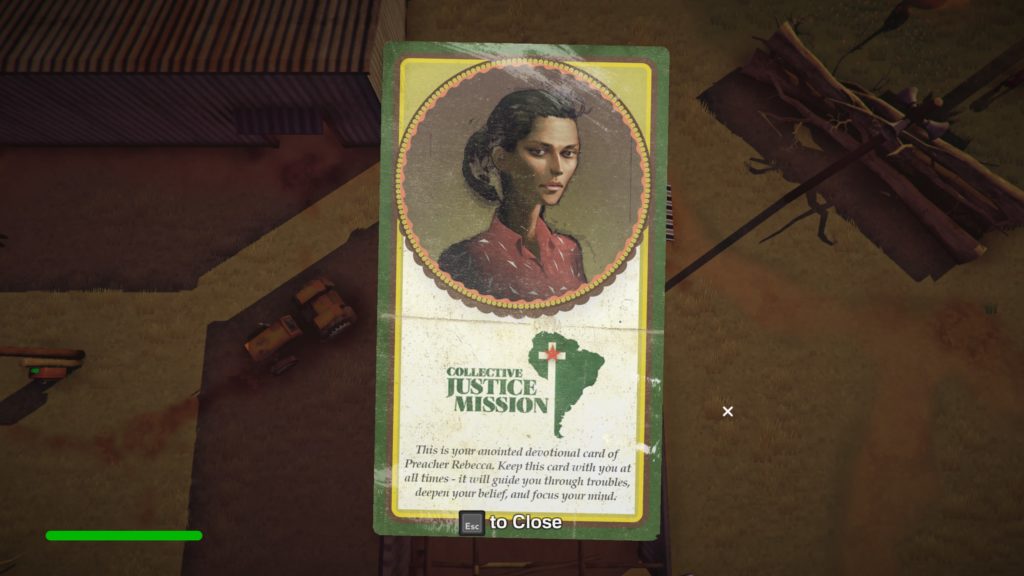
But, I’m happy to say, there are interesting things about The Church In The Darkness, even if I unfortunately couldn’t tell you everything at the time of review. After all, the cult in this game can have multiple possible actual motives. But I can tell you how it presents this cult, and how it plays, without either hitting spoiler territory, or ignoring its themes.
First, let’s begin with it being the late 1977s. Conservatives were in power (Specifically, Gerald Ford, but Watergate only having been three years previously was still in people’s minds), and were pushing back at rights movements and welfare programs alike. Vietnam had only ended two years previously, which, even today, has left its psychological scars on people. And, while there were fights for women’s rights, and the blaxploitation film movement, it was mostly a time of rising conservatism, and a bigoted focus on “Traditional Values.” And this could be argued to be one of the points from which conservatives pushed harder for using “Socialism” as a dogwhistle for everything progressive they hated in America.
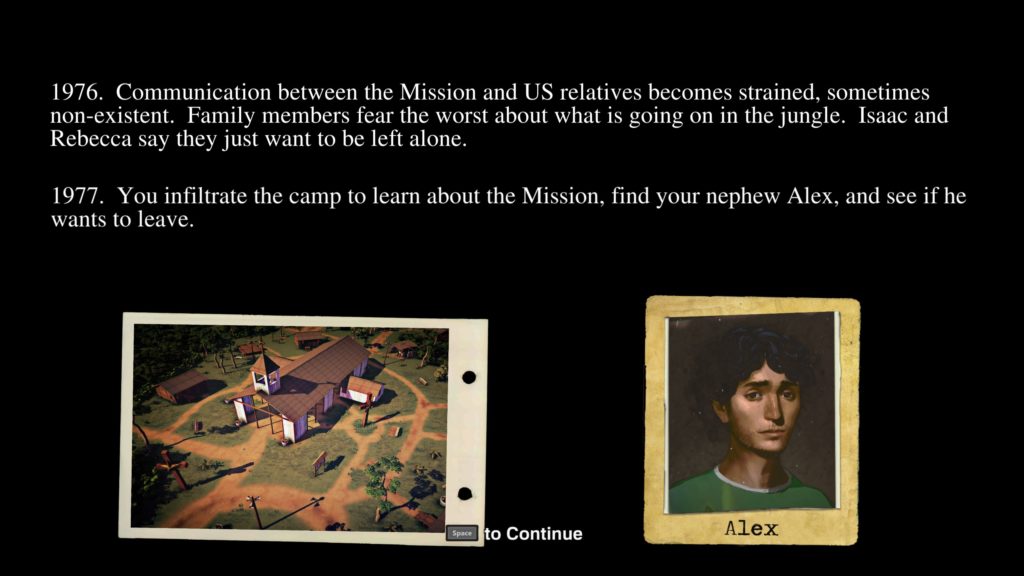
Enter… The Collective Justice Mission, a radical (by 1970s standards) group, charismatic leaders and all, who’ve relocated to South America to found what they consider their ideal society, under a regime they think will support them. And enter you, Vic, a man asked to find your friend’s nephew, Alex, and try to get him away from this group. Now… Enter nuance. Enter narrative and choices.
Overall, the game is a stealth game. Vision cones, distraction tactics, going loud, going silent, going nonlethal, and procuring on site. It’s visually clear, the voice work is great, and has a few stars like Ellen McLain and John Patrick Lowrie, playing Rebecca (Cult Leader 1) and Isaac (Cult Leader 2) respectively. The controls and play are easily understood, and it’s actively recommended you try it on easy until you’re comfortable with the idea of extra handicaps. But this, honestly, isn’t the most interesting part of it to me. And I feel that was the intention.
What was interesting, to me, was the discoveries, and the narrative. I did say it was nuanced, and I stand by that. Alex is latino. Other characters are folks of colour. Rebecaa and Isaac are… Well, they’re white, and, since their motives can differ from playthrough to playthrough, you don’t notice, at first, what kind of radicals they both are. Because, for the early game at least, they’re emphasising that this is their home, their paradise in which they’ll show America that they are wrong, and that they are right. And they’ll mention injustices, historically accurate ones, from gripes to serious matters.
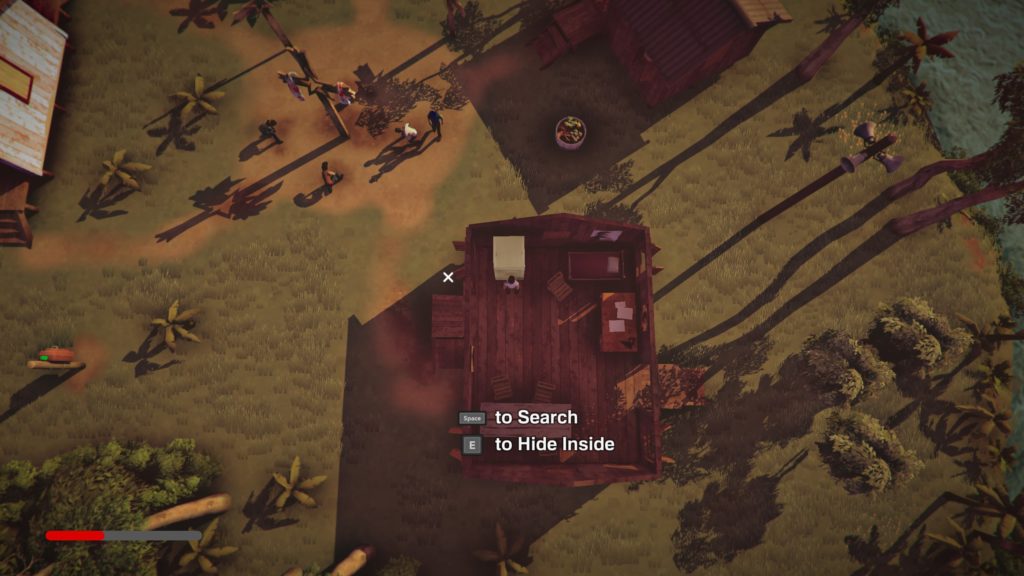
And the people walking around, the wooden huts, the rural life… At first, it all seems so bright and cozy, with the exception of, you know, people shooting you when you’re detected, then locking you in an increasingly difficult to escape situation each time, with one of the cult leaders telling you that your imperialist ways won’t stop them, that no-one can stop them. And they are convincing, full of fire and brimstone when it comes to enemies, sweet and caring (at first) for their devotees. When you find Alex, no matter who you were sent to consult who is at least neutral to your presence, he’ll tell you that the cult, genuinely helped him, emotionally and physically, out of a bad situation, and he’ll even be confused by the fact his family is looking for him, considering they had previously ostracised him.
But, the more you explore, the longer it goes on, and… You start noticing there’s trouble in paradise. Alex may tell you that food is scarce, and others who let you talk to them may also tell you troubling things (Or they’ll deny that there is a problem, because the cult had, seemingly, genuinely done good things for some of its members.) But this is a cult with guns, and firing ranges. Sometimes (often) you’ll come across corporal punishments and shaming, from a public haranguing session, all the way to people being stoned and locked in cages. There are relatively few farms, relatively few people fishing.
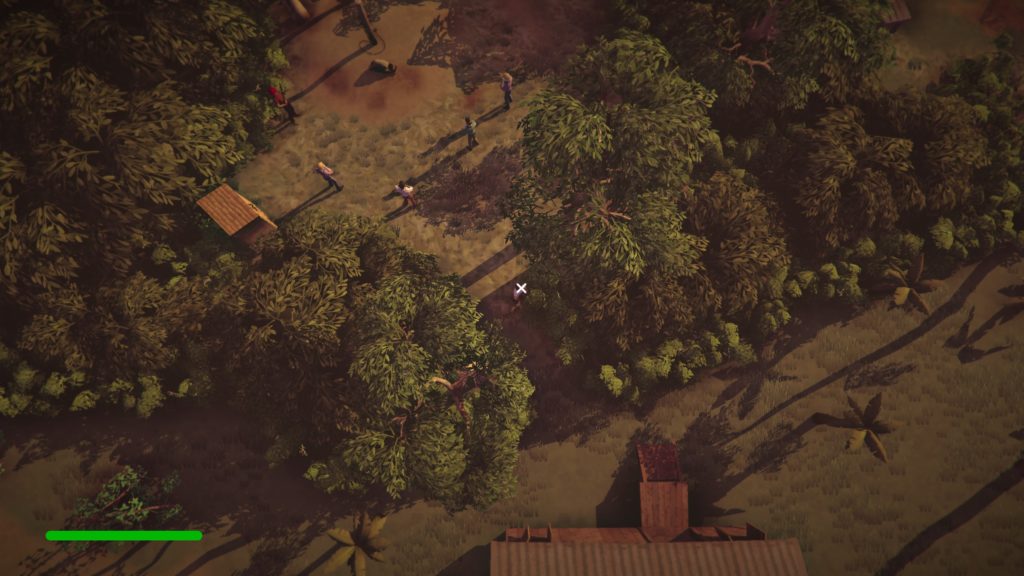
And, over time, the tone of the respective cult leaders… Changes. In the playthrough where I’d gotten the furthest (Yes, you can, once you’ve found Alex, just book it, but I didn’t take that option once), Isaac started sounding more tired, talking like a divorced husband trying not to let the children know how bad the fights had gotten, while Rebecca… Her fire and brimstone tone got louder, talking about her allies in the South American military, and more emphasis on not being stopped. Even the documents, scattered around, show that this paradise is rotten to the core, unbeknownst to its members who form the peel.
But even when I met Isaac, snuck into his home base (notably, separated from Rebecca’s), he was loudly denouncing me as an enemy, someone who would murder him, kill his great dream… Even as I just… Stood there. Hell, I don’t think I even had a gun, at that point. And this was jarring, until I realised… Oh. Yeah. To him, I’m the Great Satan, aren’t I? No matter what I do, I want to take away one of his flock, and see what’s really going on, and that’s anathema to him. Well, shit.
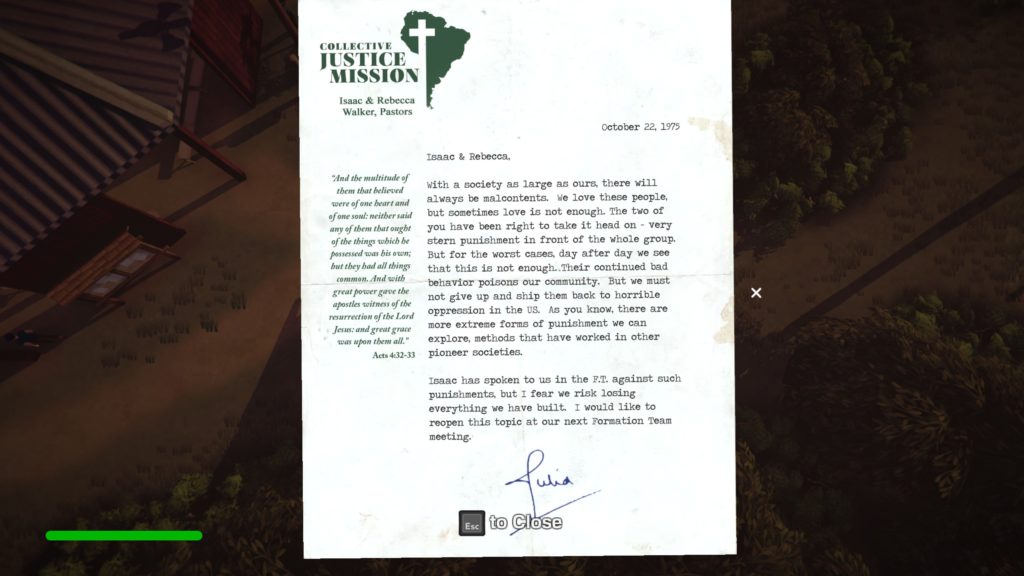
Now, in the interest of balance, I will say this is probably one I want to come back to, not just because I find the narrative as presented so far interesting and pretty well presented, but because I want to see if it stays that way. It isn’t the easiest to sneak around, and I have to do a lot of sneaking around, with the rare villagers’ clothing not being as big a help as you’d think. Which, again, makes mechanical sense, as everyone here knows each other. Clothes or no, get close enough, and they’ll recognise you as an outsider, as other.
But, overall, I feel it goes interesting places, and I do want to explore its multiple motivations, its multiple potential endings. And that’s a good sign.
The Mad Welshman believes in giving interesting narrative its fair due. And there’s… A lot to unpack here.
